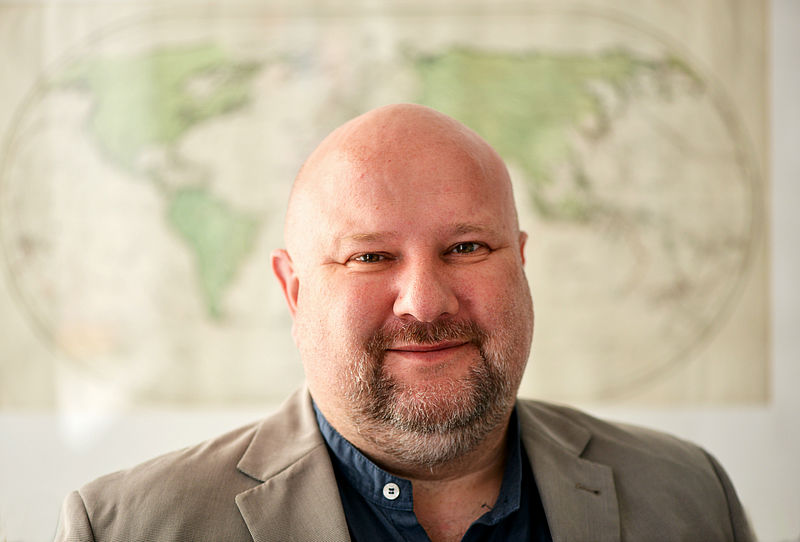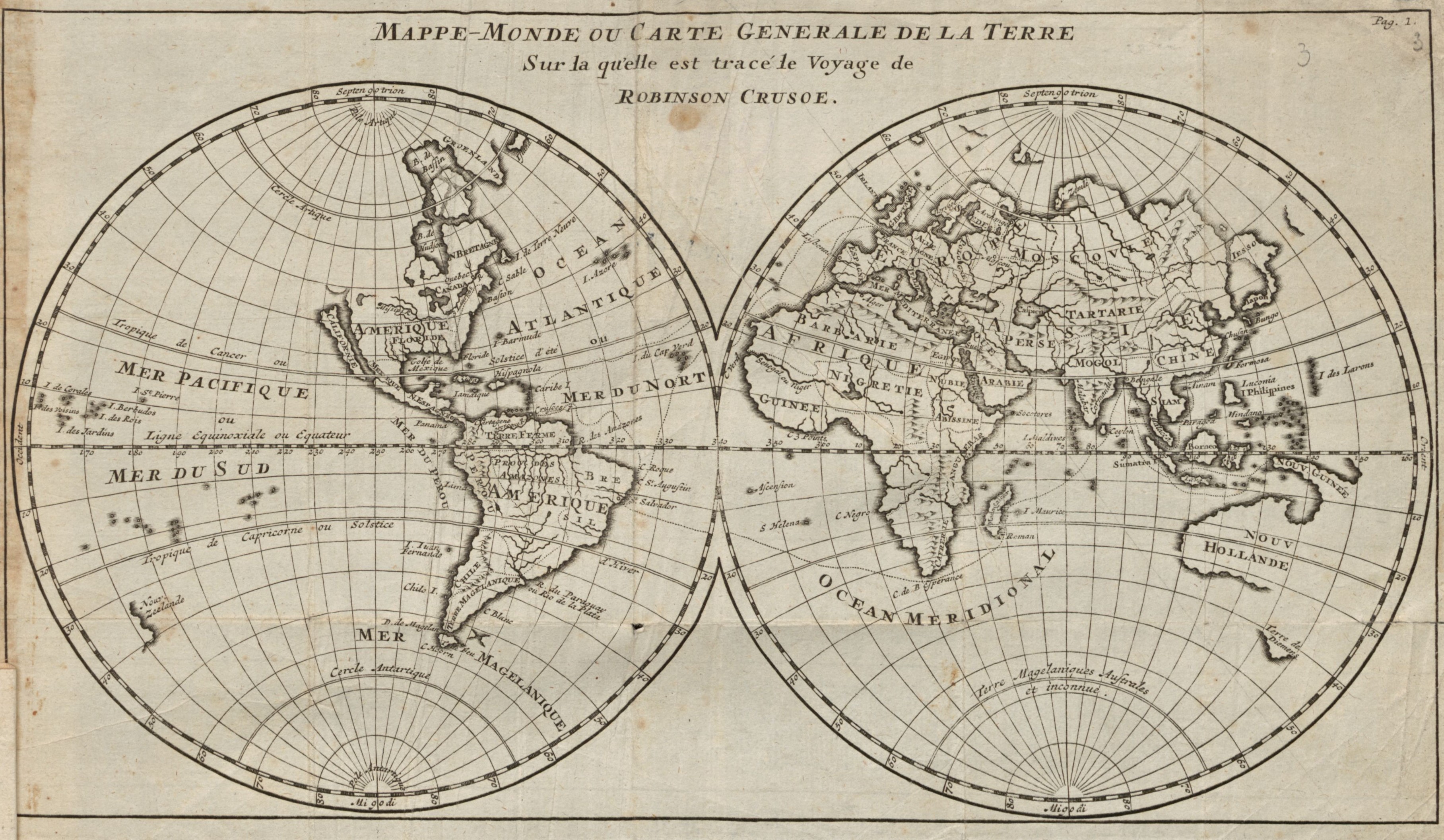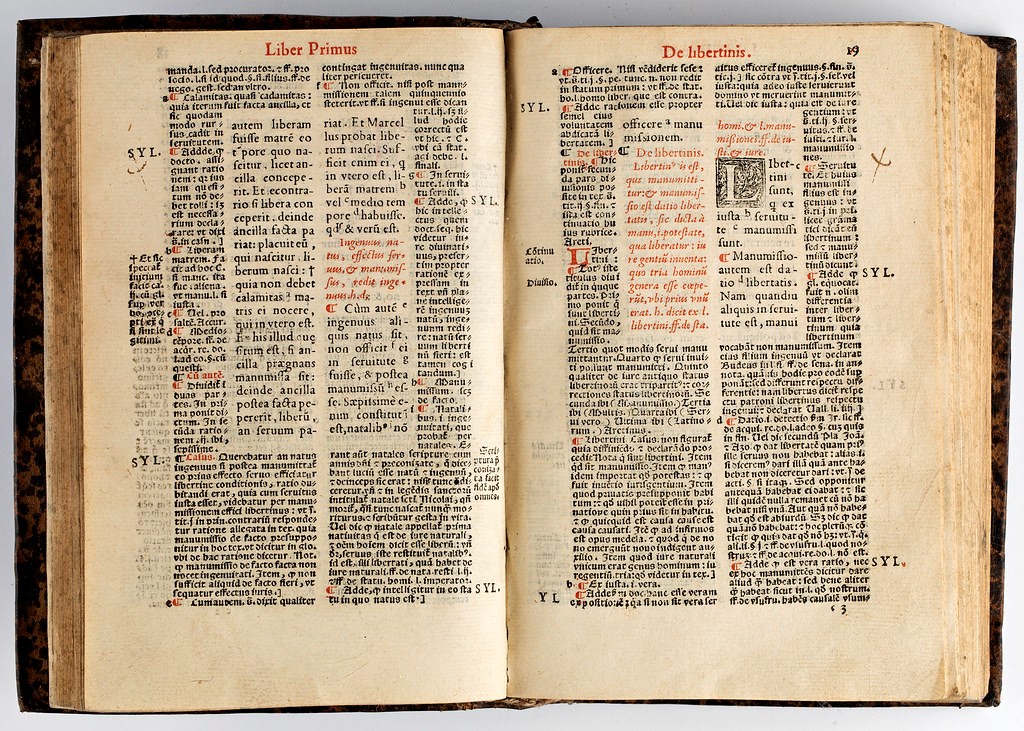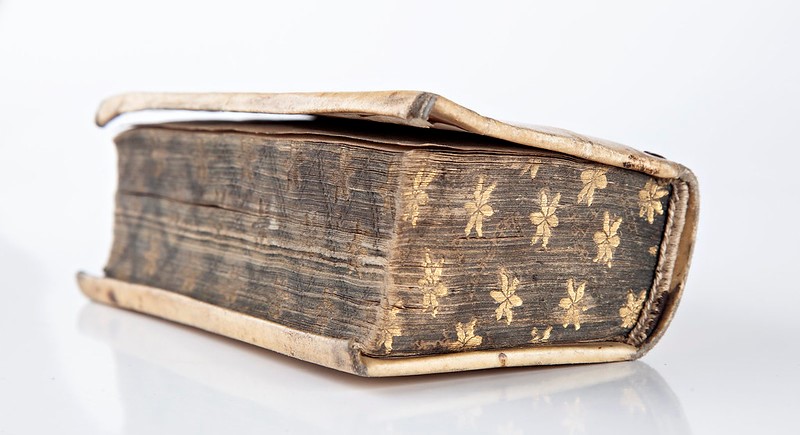 Prof. Dr Axel E. Walter teaches at the Faculty of Communication of Vilnius University and also works at the Heritage Collections and Research Department of VU Library. His research interests in the history of East Prussian Culture and Late European Humanism are closely connected to the collections of Vilnius University Library. Pandemic and quarantine have separated the professor from Vilnius; he currently resides in Germany, where he is teaching remotely as well as conducting his research. It is always useful to evaluate your activities from a different perspective – that is why we decided to ask his opinion about thousands of the Library’s digitised documents that recently received a public-use status and about our digital collections, which attract more and more attention.
Prof. Dr Axel E. Walter teaches at the Faculty of Communication of Vilnius University and also works at the Heritage Collections and Research Department of VU Library. His research interests in the history of East Prussian Culture and Late European Humanism are closely connected to the collections of Vilnius University Library. Pandemic and quarantine have separated the professor from Vilnius; he currently resides in Germany, where he is teaching remotely as well as conducting his research. It is always useful to evaluate your activities from a different perspective – that is why we decided to ask his opinion about thousands of the Library’s digitised documents that recently received a public-use status and about our digital collections, which attract more and more attention.
You probably noticed that starting from this year we present the possibility to use the Library’s Digital Collections without restrictions, as they have been given the Public Domain status. Do you use collections of our Library for your research? Are the materials you need already digitised and available?
As you are probably aware, I carry out research on Vilnius University Library and I use the wonderful and sometimes unique collections since 1996 in different research contexts. Some years ago, we had an RCL Project VIRTUS – Virtual reconstruction of the old Vilnius University Library, so yes, I am using Vilnius University Library collections with much benefit for my research. But I still would like to learn much more, especially about the great historical collections, historical maps in particular.

Today, libraries, archives and other public institutions put a lot of digitised documents on the Internet. On the one hand, making digital copies of historical collections, of manuscripts, old prints, maps and so on, requires competent and thus expensive staff, as it costs money and also time. On the other hand, users will find many examples of insufficient quality because neither the staff nor the money and certainly not the time were provided (or available, in fact). But digitisation in VU Library is on the right path. If compared to some (not all) German libraries, VU Library seems to be faster and more systematic.
When a single library in Germany digitises parts of its collections this is also often done with the help of projects that precisely target the respective segments. However, digitisation is organised differently in Germany. This is due to a different library system that is not structured nationally but according to federal states. We do not have one central virtual catalogue of all scientific and university libraries, but almost a dozen central virtual catalogues in which the public academic libraries of different federal states enter their collections. If, for example, one library wants to digitise a print from the 17th century, they search in these different catalogues whether a digitised copy of this book is available somewhere else in the network. If this is the case, normally the library will not digitise the title – it will simply link to the other library which has already done it. Therefore, libraries can save funds and staff needed for digitisation, but it costs them time to research the links.
When did digitisation start in Germany?
It started around 2000, but it has gained traction during the last 10 or 15 years because of funding programs by the German Research Foundation. Some libraries have found other ways to digitise their rare books. For example, in 2007 the Bavarian State Library in Munich signed a contract with Google for digitisation of all old prints. I remember when we started our first project with Lithuanian libraries in 1996 the official strategy of German libraries was to do microfilms. Now the number of digitised manuscripts, old prints, historical maps and other documents is growing daily. We have started with the national catalogue of prints of the 17th century and are currently working on the prints of the 18th century. But there is still a lot of work to be done. Smaller libraries, like, for example, Eutin State Library are also trying to carry out important projects: This scientific library in the North Germany has fully digitised a newspaper that was founded in 1802 and that still exists; the current years will continue to be digitised. However, small libraries in particular often lack the technical, human and financial resources.

What about public domain status of digital materials of libraries in Germany? Is it open to everybody?
Yes, usually the digitised items are freely accessible via the virtual catalogues or via the home page of the owning library. They can also be downloaded. The only difference is that libraries are using various programs to download or to view those copies. Of course, everything that is protected by copyright laws may not be digitised without contracts or permissions. However, there are more and more efforts at universities or scientific centres to publish research material that is produced at the institution (like PhD theses or books written in a project) as open access. But that initiative is still at its infancy.
Do you think this public domain status is more important to the general public or to researchers?
It is absolutely important for researchers. I remember my own PhD thesis, which I wrote during the 90’s, travelling through half of Europe to find materials. I am really happy to have had such a great time, but nowadays a lot of this material is on internet platforms. So public domain is very important for researchers. And I guess that the gap between scientists and interested users of rare materials can be closed a bit more by public domain projects, because more people can now see (and study) the important books, pictures, engravings, maps, etc. Maybe the virtual experience could encourage even more people to visit historic libraries. Because it is still a completely different experience to touch an old book with your hand than just looking at it on the screen or reading it as a printout.
Our library had a tough year: because of quarantine, we had to celebrate an important 450th anniversary without face-to-face meetings or live events. You have also taken active part in planning several big anniversary events.
Oh yes, we have spent more than five years for preparations. We started a publication on the history of the library, we planned to organise a huge international conference in October last year and have invited people from all over Europe. Everything had to be cancelled and it is a pity for all those people who did a lot of work. I hang on with all my heart to this anniversary and hope that we can catch up as much as possible.
It is a very complicated situation for everybody – students, professors, librarians. The situation burdens people all over the world not only physically but also psychologically and materially. Thank God my family and I have been escaped the disease so far. But it has been more than one year already that I am not travelling to Lithuania as I have used to do for two and a half decades. Since 2006 I have stayed in Lithuania for some time every month, and there was no period where have not seen my friends, colleagues and students for such a long time.

What do you miss the most about Vilnius University Library?
I miss the whole library, I miss meeting colleagues and friends from the Rare Book Department, I miss the spirit of the old library in the city centre and the atmosphere in SCIC. Vilnius University Library is an integral part of my life – and not just as a scientist.
Pandemic made us all turn to the Internet. Did we open our digital collections and announced public domain status just in time?
I guess the closure that has lasted more than a year now has given much more input, much more impetus on digital strategies of libraries both in Germany and Lithuania. We are able to spend more time, money and workload on our Internet presentations. Of course, every library still has to attract users into its reading rooms and pursue concepts for them. Therefore, we should all hope that it will soon be possible to return to normal operations and to meet students even at night in the SCIC.
It really is great that Vilnius University Library is putting so much emphasis on a digital strategy. I guess that it is an important step, as in my opinion collections of VU Library are not so well-known in Europe so far. There are so many singular prints, maps and handwritings that should be spread much more. Public domain strategy will help, it will support that. It is wonderful news for Lithuanian as well as international researchers, for users, and there should be no way back. There is no doubt that VU Library is on the right track and that it has already come a long way. In my opinion, Vilnius University Library is among the more progressive libraries in Lithuania and maybe, as far as I can compare, in the Baltic States; not to say more progressive than many German libraries.
Images: Prof. Dr Axelis E. Walteris (1); associat. illustrations from VU Library's archives (2, 3, 4).
Nijolė Bulotaitė, 2021-06-01
